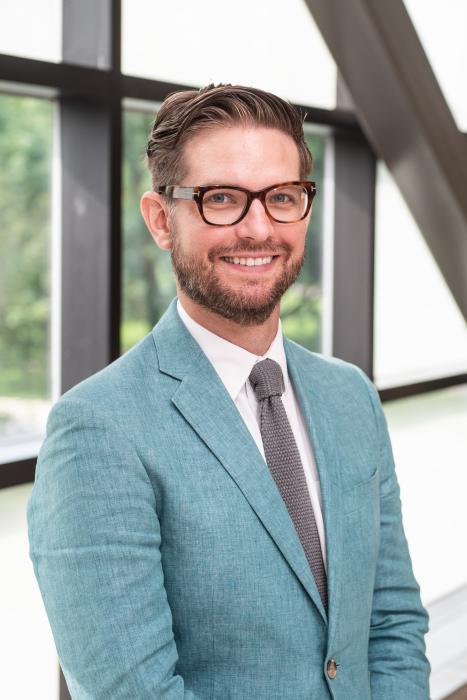
John Romey
John Romey
Dr. John Romey is a specialist of early modern French music, politics, religion, and spectacle; of South American colonial and indigenous musics; and of historical bowed bass instruments, instrumental technology, and historical performance practices. His research has been supported by a Mellon/ACLS Dissertation Completion Fellowship, a Fulbright Fellowship, the Holmes/D’Accone American Musicological Society Travel Grant for travel and research in the history of opera, the American Musicological Society’s M. Elizabeth C. Bartlet Travel Grant, a Herzog-Ernst-Fellowship-Programme Fellowship, a Fritz Thyssen Stiftung post-doc, a Herzog August Bibliothek Short-Term Post-Doctoral Fellowship, and a Fritz Thyssen Stiftung travel stipend.
His current book project, titled “Madness and Utopias: Ludic Song and Social Disorder in Early Modern France,” examines the interplay between oral and literate song traditions in early modern Paris. Individuals participating in these interwoven traditions composed new texts to popular songs, known as vaudevilles, and parodied airs from contemporary spectacles, especially tunes from the Opéra. This research presents new perspectives on how cultural events, from civil wars to an operatic premiere, injected society with new publicly shared artifacts that individuals manipulated to forge novel expressions of self and agency. His analysis demonstrates that the performance of a staged spectacle only constituted a small portion of its social significance in seventeenth-century Paris because spectacles were interactive events that engendered countless subsequent performative acts. It illuminates how song inspired forms of social play and identity formation by members of different social groups, from blind beggar-musicians on the Pont-Neuf (the “new bridge” that became a central gathering space and hub for oral and written communication) to fashionable elites at feminocentric literary salons. Through an analysis of material and performative culture in this period, he offers new insight into how subversive song fomented disorder and shaped aspirations of social utopias.
Trained in historically informed performance at Case Western Reserve University, Dr. Romey is an expert on the history of the Viennese Violone and performs professionally on violones and viols of all sizes. He has created a performance-based research project that is reconstructing a consort of French Renaissance viols (https://thefrenchconsortproject.com). While grounded in scholarship, this project will culminate in the creation of experiential learning modules for students in the music history classroom.
At Purdue University Fort Wayne, Dr. Romey offers courses in global music history, including an upper-level course on American Roots to Modern Popular Music, and elective musicology courses such as “MUSC 40505: Women and Musical Salons.” He serves as artistic director for the early music ensemble and as the school of music’s liaison and advocate for the university’s honors program.
Selected Publications:
“An Instrument ‘with which gentlemen, merchants, and other men of virtue pass their time’: The Viola da Gamba in Sixteenth-Century France” Early Music History 42 (2023): 235–275. https://doi.org/10.1017/S0261127924000056
“The Long Death of French Renaissance Viols” Journal of the Viola da Gamba Society of America 52 (2021–2024): 80–109. https://www.vdgsa.org/_files/ugd/d4b545_b8e9fe1590f7427db872af8f10445c8d.pdf
“‘The pieces that are in the hands of everyone belong to the public’: Philippe-Emmanuel de Coulanges, Song Networks, and Operatic Artifacts in Seventeenth-Century Paris,” Cambridge Opera Journal 31, no. 2 (2024): 314–350. https://doi.org/10.1017/S0954586724000053
“Polluted Soundscapes and Contrepoison in Sixteenth-Century France: The Sonic Warfare Leading to the First War of Religion” Yale Journal of Music & Religion 9, no. 3 (2023): 51–79. https://doi.org/10.17132/2377-231X.1253
“Songs that Run in the Streets: Popular Song at the Comédie-Italienne, the Comédie-Française, and the Théâtres de la foire,” The Journal of Musicology 37, no. 4 (2020): 415–58. https://doi.org/10.1525/jm.2020.37.4.415
“Singing the Fronde: Placards, Street Songs, and Performed Politics,” in “Soundscapes,” ed. Nicholas Hammond and Tom Hamilton, special issue, Early Modern French Studies 41, no. 1 (2019): 52–73. https://doi.org/10.1080/20563035.2019.1612563

